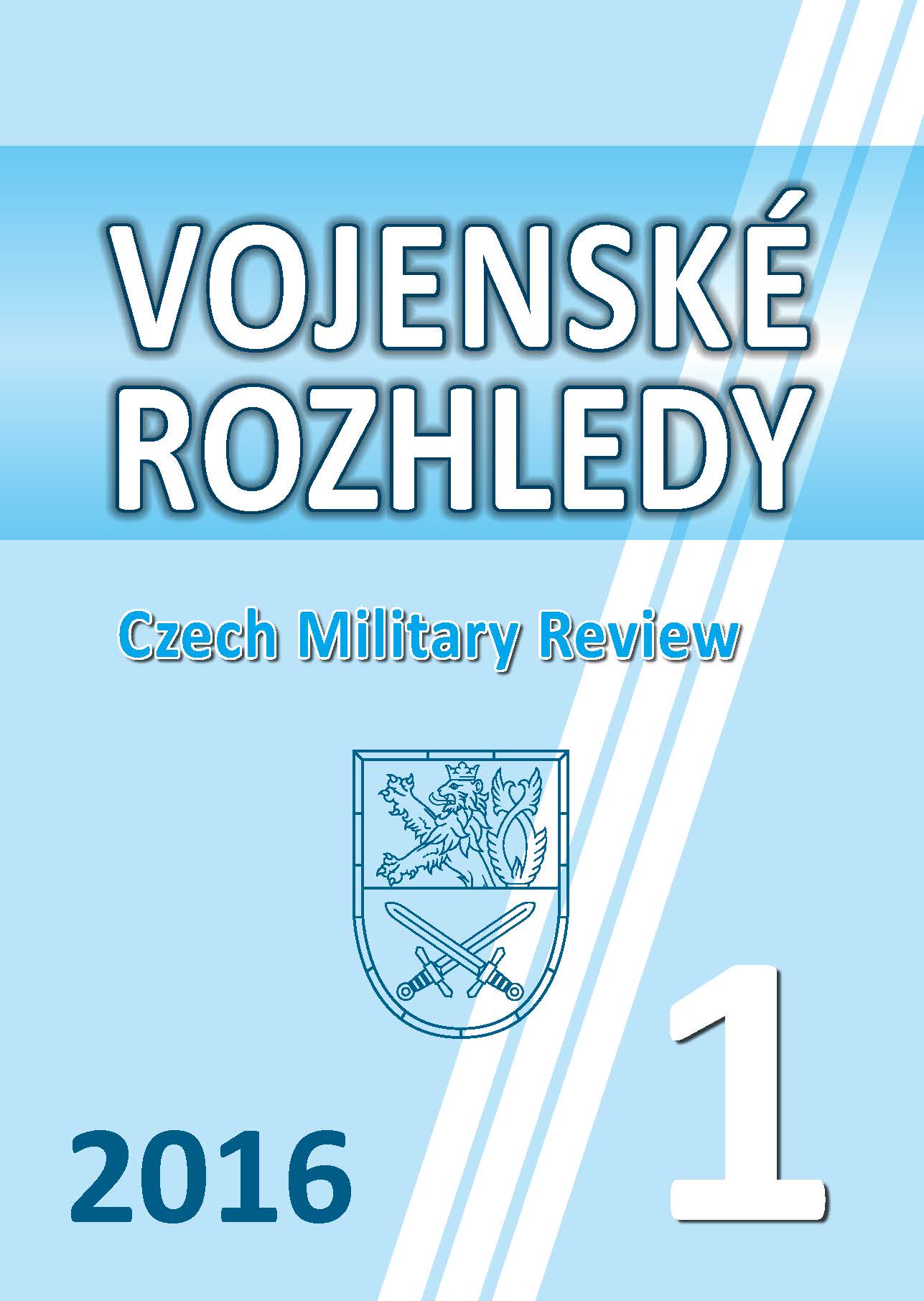Scénáře v procesu plánování schopností
Scenarios in Capabilities Planning Process
Author(s): Josef Procházka, František Mičánek, Jozef Šmondrk, Josef MelicharSubject(s): Security and defense, Military policy
Published by: Univerzita obrany - Centrum bezpečnostních a vojenskostrategických studií
Keywords: Operational Environment; Defence Planning Process; Capability Planning; Scenarios; Capability-Based Planning; Ambitions; Commitments
Summary/Abstract: This article describes the doctrinal determination and definitions of the term Actionable Intelligence and the impact of this specific intelligence concepton commander’s decision-making process. The part of this report deals with the position of Actionable Intelligence in intelligence branch, concretely in connection with the intelligence disciplines and particular stages within intelligence cycle. There is also the accentuation of interconnection to the importance of intelligence information sharing,early warning systems and force protection on tactical level. The next part of this article is focused on the impact of intelligence support oncommander’s decision-making processes.The aim of the article is to bring inspiration and offer needed recommendations for implementing the scenarios in the defence planning process. The article addresses purpose, development and practical application of scenarios in a national defence planning process, utilizing capability based planning (National Capability Based Defence Planning - NCBDP). During the planning scenarios are used for identification and verification of capability requirements. Scenarios depict main features of the environment in which the armed forces will be employed to execute military missions. Scenarios reflect as well operational concepts in a sense of doctrinal use of armed forces. Furthermore, they offer a possibility to identify and quantify required capabilities in a volatile, difficult to predict, complex, permanently and dynamically changing environment, and reduce level of uncertainty and associated risks. In this regard, scenarios are significant analytical and supporting tool of defence planning with high value added. Correct application of scenarios allows defining a set of required capabilities necessary for success in potential future conflicts. Scenarios enable long-term planning of capabilities development and optimisation as a platform for qualified and well informed decisions at the MoD level on the armed forces character, structure and size with regard to the ambitions and international commitments of the country. In the conclusion the article brings recommendations for the defence planning process improvement by exploiting capability based planning and scenarios. Recommendations provided in the article include doctrinal changes, organizational changes within MoD and General staff, recommendationsfor updating the education plans for military personnel, recommendations for optimization of the defence planning proces as well as for necessary changes in the approach of the defence managers and military leaders to the described method.
Journal: Vojenské rozhledy
- Issue Year: 25/2016
- Issue No: 1
- Page Range: 44-60
- Page Count: 17
- Language: Czech

